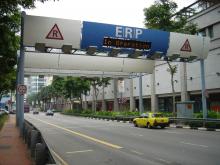The main findings and recommendations of the INTERREG IVC co-funded POSSE project are summarised in several reports, the POSSE Good Practice Guide to developing and implementing OSS and the POSSE Exploitation Plan, both of which were published towards the end of 2014.
The three years of discussion and knowledge-sharing on Open Specifications and Standards (OSS) for urban ITS in Europe have been very beneficial to all partners; a key finding of the project is that the diversity of Europe, notably its in
The main findings and recommendations of the INTERREG IVC co-funded POSSE project are summarised in several reports, the POSSE Good Practice Guide to developing and implementing OSS and the POSSE Exploitation Plan, both of which were published towards the end of 2014.
The three years of discussion and knowledge-sharing on Open Specifications and Standards (OSS) for urban ITS in Europe have been very beneficial to all partners; a key finding of the project is that the diversity of Europe, notably its institutional and market culture, makes it extremely challenging to have a single approach or framework for achieving interoperability of urban ITS.
The original intention of the POSSE project was to deliver a combined approach to OSS, building on the German (OCA) and UK (UTMC) approaches; however, this has proved unattainable. In addition, while the approach of UTMC and OCA in generating and disseminating standards was found to be very valuable, it was not appropriate to simply adopt their specific technical frameworks in other countries. However, the overall principles are transferable and these have been brought together in the POSSE Good Practice Guide.
If a national/regional approach to OSS development and implementation is the most realistic scenario, the key question is what can be done to make this happen? It requires effort at regional or national level, whether driven by national governments or through city groups/networks. In some countries (notably, Germany, Austria, Switzerland, United Kingdom and more recently in the Nordic countries), this is already underway. In most of the other European countries, the starting point is probably lower. Yet vendor lock-in is widespread in most of Europe. Many city and regional authorities are dependent on the products on offer and have a reluctance (for cost and risk reasons) to stray far from an established local supplier base.
In order to overcome the vendor lock-in that exists in some countries and to maximise the effectiveness of the market, there is scope for a long-term European action to encourage the development of national/regional frameworks where they do not currently exist and to facilitate knowledge exchange among the existing national/regional forums.
The three years of discussion and knowledge-sharing on Open Specifications and Standards (OSS) for urban ITS in Europe have been very beneficial to all partners; a key finding of the project is that the diversity of Europe, notably its institutional and market culture, makes it extremely challenging to have a single approach or framework for achieving interoperability of urban ITS.
The original intention of the POSSE project was to deliver a combined approach to OSS, building on the German (OCA) and UK (UTMC) approaches; however, this has proved unattainable. In addition, while the approach of UTMC and OCA in generating and disseminating standards was found to be very valuable, it was not appropriate to simply adopt their specific technical frameworks in other countries. However, the overall principles are transferable and these have been brought together in the POSSE Good Practice Guide.
If a national/regional approach to OSS development and implementation is the most realistic scenario, the key question is what can be done to make this happen? It requires effort at regional or national level, whether driven by national governments or through city groups/networks. In some countries (notably, Germany, Austria, Switzerland, United Kingdom and more recently in the Nordic countries), this is already underway. In most of the other European countries, the starting point is probably lower. Yet vendor lock-in is widespread in most of Europe. Many city and regional authorities are dependent on the products on offer and have a reluctance (for cost and risk reasons) to stray far from an established local supplier base.
In order to overcome the vendor lock-in that exists in some countries and to maximise the effectiveness of the market, there is scope for a long-term European action to encourage the development of national/regional frameworks where they do not currently exist and to facilitate knowledge exchange among the existing national/regional forums.













